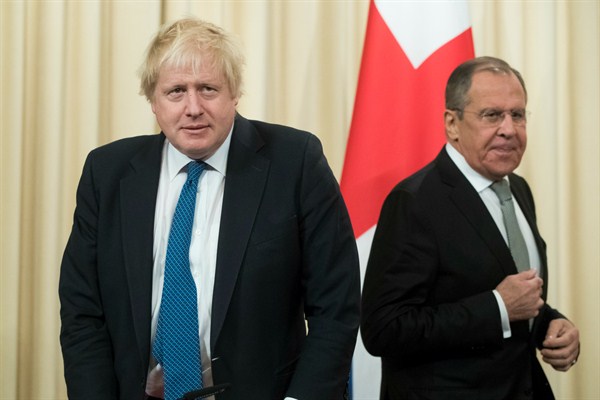In late December, British Foreign Secretary Boris Johnson had a tense meeting with his Russian counterpart, Sergey Lavrov, during a visit to Moscow—the first by a British foreign secretary in five years. Johnson and Lavrov clashed over allegations of Russian meddling in European elections and the U.K.’s Brexit referendum. Lavrov admitted it was “not a secret” that the relationship between Russia and the U.K. was at a “very low point.” In an email interview, Duncan Allan, an associate fellow with the Russia and Eurasia Program at Chatham House in London, discusses the nature of the tensions, their economic impact and the prospects for mending ties.
WPR: What has been the recent trajectory of U.K.-Russia relations, and what have been the driving factors?
Duncan Allan: Relations between the United Kingdom and Russia have been in the doldrums for more than a decade. There are several reasons why. First, there’s little basis for sustained cooperation and genuine trust, as the relationship is underpinned by few shared values. For the U.K., this was exemplified by the horrendous 2006 murder of Alexander Litvinenko. A former Russian security services officer who defected to the U.K. and became a British citizen, Litvinenko was killed in London by radioactive poisoning. British and Russian leaders also have different understandings of democracy, rule of law, human rights and state sovereignty. Crises in Iraq, Afghanistan, Libya, Syria and Ukraine show that British and Russian foreign policy interests regularly diverge and can even be irreconcilable. Relations are also weighed down by historical baggage. Over the years, there has been a pattern of long periods of confrontation and hostility interspersed by briefer phases of relative calm. Bad relations aren’t inevitable, but this history of friction does mean that the U.K. and Russia approach each other warily and with suspicion.

